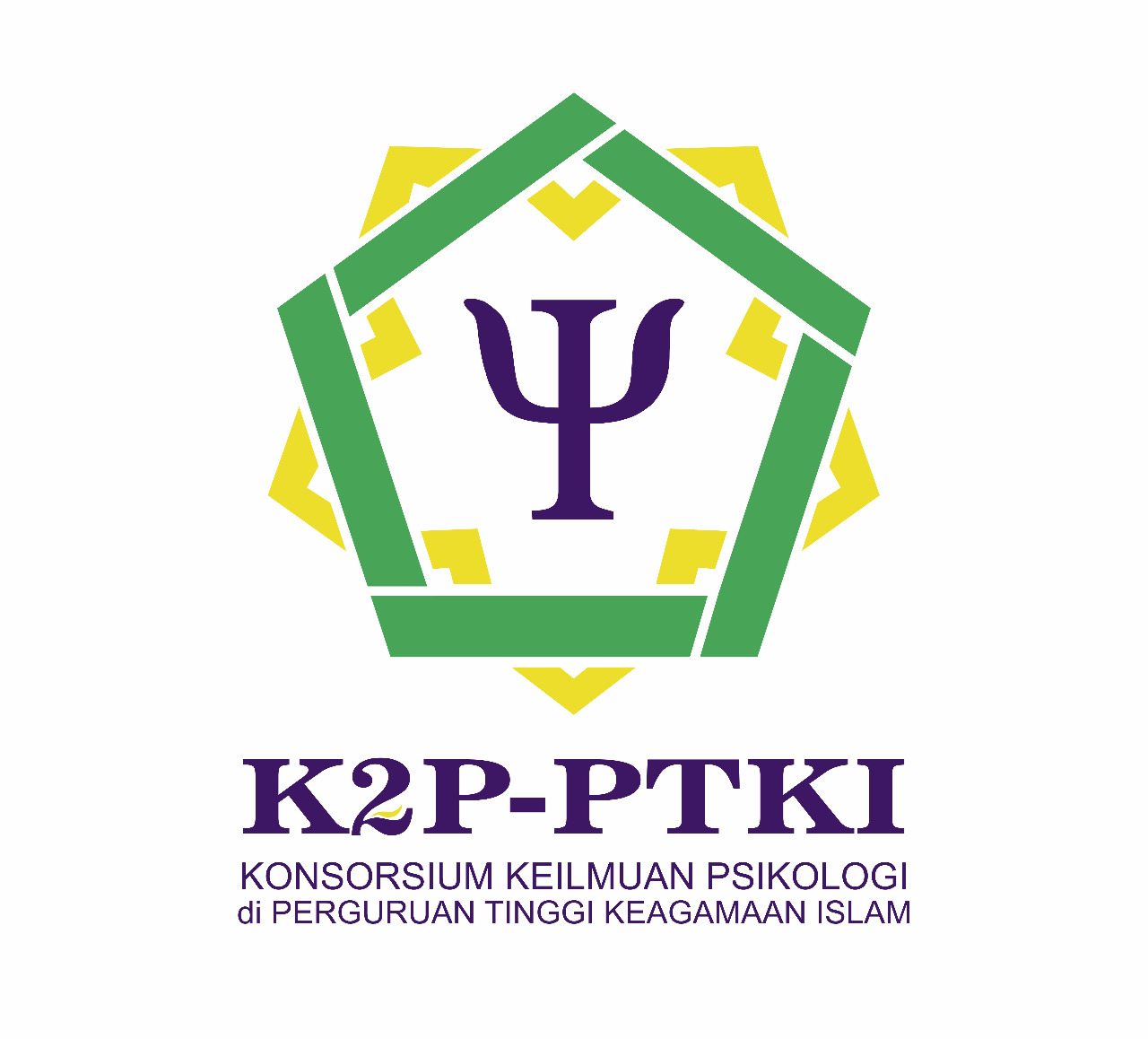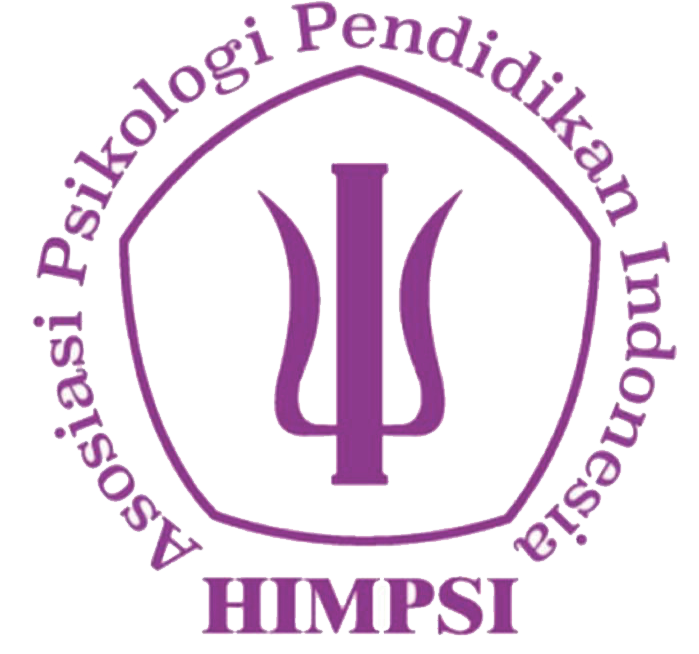Islamic Religion-Focused Coping Method as a Strategy to Manage Work Stress/ Metode Islamic Religion-Focused Coping sebagai Strategi Mengatasi Stres Kerja
Abstract
Abstract: Islamic Religion-Focused Coping is a strategy as an effort to manage work stress by using religious belief and demonstrating religious behavior in order to prevent or reduce the consequences of work stress. Work stress in companies has become an important issue to observe due to the emergence of demand to be more efficient at work. This research was conducted to describe the Islamic religion-focused coping in garment company employees who experienced work stress. The research design used was quantitative-descriptive method through questionnaire. The participants of this study were 82 employees who went through screening stage with a stress diagnostic survey to measure work stress. The result showed that the most prominent source of stress among 75 employees with work stress at moderate and high levels resulted from group of colleagues. The instrument used was a questionnaire developed by Pargament to examine employee Islamic religion-focused coping. The final result showed that a total of 86% employees used Islamic religion-focused coping in managing their work stress. On its dimension, employees often used religious belief (believing that Allah SWT would help solve every problem) and religious behavior (praying and reciting Al-Quran). Demographic factors in this research also affected how an employee used the coping, namely age development. This indicates that the elder the employees are, the more they use Islamic religion-focused coping to reduce work stress and maintain productivity at work.
Keywords: Islamic Religion-Focused Coping; Productivity; Work Stress
Abstrak: Islamic religion-focused coping merupakan strategi yang berlangsung sebagai bentuk usaha mengelola stres kerja dengan cara menggunakan kepercayaan agama (religious belief) dan melakukan kegiatan keagamaan (religious behavior) untuk mencegah atau mengurangi konsekuensi stres kerja. Masalah stres kerja di dalam perusahaan menjadi gejala yang penting diamati sejak tuntutan untuk lebih efisien di dalam pekerjaan. Penelitian ini dilakukan untuk memaparkan Islamic religion-focused coping pada karyawan perusahaan garmen yang mengalami stres kerja. Rancangan penelitian ini yakni metode kuantitatif dengan metode deskriptif melalui kuesioner. Partisipan penelitian yakni karyawan sebanyak 82 orang, yang kemudian melalui tahap screening dengan stres diagnostic survey untuk mengukur stres kerja. Didapatkan data sebanyak 75 karyawan yang merasakan stres kerja di taraf moderat dan tinggi, sumber stres yang paling menonjol berasal dari kelompok rekan kerja. Alat ukur yang digunakan yakni kuesioner yang dikembangkan oleh Pargament untuk melihat bagaimana gambaran Islamic religion-focused coping terhadap karyawan. Hasil akhir menunjukkan bahwa sebanyak 86% karyawan menggunakan Islamic religion-focused coping dalam menanggulangi stres kerja yang dialami. Pada dimensinya, karyawan sering menggunakan religious belief (percaya bahwa Allah SWT akan membantu setiap masalah yang datang) dan religious behavior (shalat, berdoa, dan membaca Al-Quran). Faktor demografi pada penelitian ini juga memengaruhi cara seseorang melakukan coping, yaitu perkembangan usia karyawan. Semakin dewasa usia karyawan, semakin sering menggunakan Islamic religion-focused coping untuk mengurangi stres kerja dan menjaga produktivitas saat bekerja.
Kata Kunci: Islamic Religion-Focused Coping; Produktivitas; Stres Kerja
Keywords
Full Text:
PDF (Bahasa Indonesia)References
Abdul Razak, A. L., Abdul Razak, M. A., & Salami, M. (2018). The Impacts of Religious Identity on the Relationship between Workplace Stress and Inner Meaning Fulfillment among Non-Academic Staff in Malaysia (Impak Identiti Keagamaan keatas Perkaitan antara Tekanan Tempat Kerja dan Memenuhi Makna Dalaman dikalangan). Journal of Islam in Asia, 15(3), 401–419. https://doi.org/10.31436/jia.v15i3.711
Achour, M., Bensaid, B., & Nor, M. R. B. M. (2016). An Islamic perspective on coping with life stressors. Applied research in quality of life, 11(3), 663-685. https://doi.org/10.1007/s11482-015-9389-8
Angganantyo, W. (2014). Coping Religius pada Karyawan Muslim Ditinjau dari Tipe Kepribadian (Vol. 02, Issue 01, pp. (50–61).Jurnal Ilmiah Psikologi Terapan, DOI: https://doi.org/10.22219/jipt.v2i1.1769
Dehaghi, M., Goodarzi, M., Behavioral, Z. A.-P.-S. and, & 2012, U. (2012). The effect of spiritual values on employees’ organizational commitment and its models. Elsevier.
Fanggidae, R. E., Suryana, Y., Efendi, N., & Hilmiana. (2016). Effect of a Spirituality Workplace on Organizational Commitment and Job Satisfaction (Study on the Lecturer of Private Universities in the Kupang City -Indonesia. Procedia - Social and Behavioral Sciences, 219, 639–46.
Hm, M., Syariah, F., Islam, E., Sultan, I., & Gorontalo, A. (2012). STRES KERJA DAN KINERJA DALAM PERSPEKTIF TEORI DAN BUKTI EMPIRIK. https://doi.org/10.22219/jibe.v3i2.2234
Ivancevich, J. M., Matteson, M. T., & Konopaske, R. (2013). Organizational Behavior and Management.
Jum’ati, N., & Wusma, H. (2013). Stres Kerja (Occupational Stres) yang Mempengaruhi Kinerja Individu pada Dinas Kesehatan Bidang Pencegahan Pemberantasan Penyakit dan Penyehatan Lingkungan (P2P-PL) Di Kabupaten Bangkalan. Jurnal NeO-Bis, 7(2), 195–211.
Khoiroh, Q. (2013). Hubungan strategi coping dengan tingkat premenstrual syndrome pada mahasiswi Fakultas Psikologi Universitas Islam Negeri Maulana Malik Ibrahim Malang (Doctoral dissertation, Universitas Islam Negeri Maulana Malik Ibrahim).
McMahon, B. T., & C. Biggs, H. (2012). Examining spirituality and intrinsic religious orientation as a means of coping with exam anxiety. Vulnerable Groups & Inclusion, 3(1), 14918. https://doi.org/10.3402/vgi.v3i0.14918
Pargament, K. I., Falb, M. D., Ano, G. G., & Wachholtz, A. B. (2013). The religious dimension of coping: Advances in theory, research, and practice.
Pargament, K., Feuille, M., & Burdzy, D. (2011). The Brief RCOPE: Current Psychometric Status of a Short Measure of Religious Coping. Religions, 2(1), 51–76. https://doi.org/10.3390/rel2010051
Petchsawang, P., & Duchon, D. (2012). Workplace Spirituality, Meditation, and Work Performance. Journal of Management, Spirituality and Religion, 9 (2), 189–208.
Primaldhi, A. (2008). Hubungan antara trait kepribadian neuroticism, strategi coping, dan stres kerja. Jurnal Psikologi Sosial, 14(03).
Purnama, R. (2017). Penyelesaian Stress Melalui Coping SpirituaL (Vol. 12) No 1. Jurnal Studi Lintas Agama, DOI: https://doi.org/10.24042/ajsla.v12i1.1445.
Tahir, L. M., Khan, A., Musah, M. B., Ahmad, R., Daud, K., Al-Hudawi, S. H. V., Musta’Amal, A. H., & Talib, R. (2018). Administrative Stressors and Islamic Coping Strategies Among Muslim Primary Principals in Malaysia: A Mixed Method Study. Community Mental Health Journal, 54(5), 649–63.
Utaminingtias, W., Ishartono, I., & Hidayat, E. N. (2016). Coping Stres Karyawan dalam Menghadapi Stres Kerja. Prosiding Penelitian dan Pengabdian kepada Masyarakat, 3(2).
Ward, A. M. (2010). The Relationship between Religiosity and Religious Coping to Stress Reactivity and Psychological Well-Being. ProQuest Dissertations and Theses, 103.
Wartono, T., & Mochtar, S. (2017). Stres dan Kinerja di Lingkungan Kerja yang Semakin Kompetitif. Jurnal Ilmiah Prodi Manajemen Universitas Pamulang, 2(2), 1–20.
DOI: https://doi.org/10.18860/psikoislamika.v17i2.10484

This work is licensed under a Creative Commons Attribution-NonCommercial-ShareAlike 4.0 International License.

------------------------------------------------------------------------------------------

pSIKOISLAMIKA by http://ejournal.uin-malang.ac.id/index.php/psiko is licensed under a Creative Commons Attribution-NonCommercial-ShareAlike 4.0 International License.


.jpg)


.jpg)





